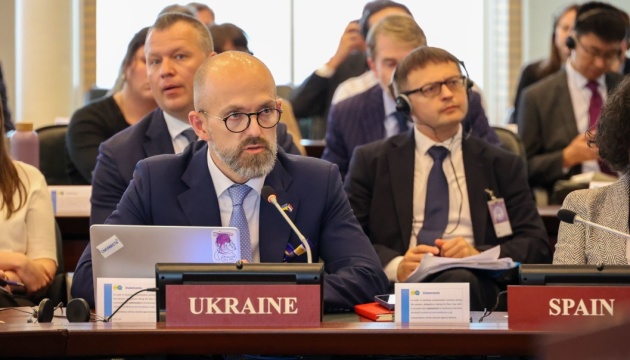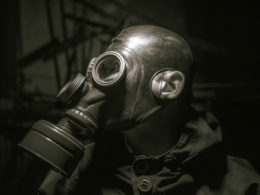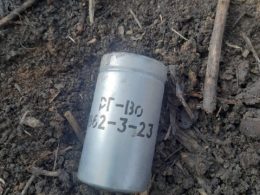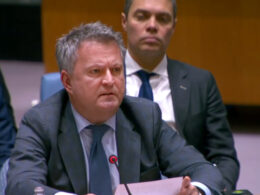Ukraine has presented detailed evidence to the Organization for the Prohibition of Chemical Weapons (OPCW) regarding Russia’s violations of the Chemical Weapons Convention during the ongoing Russo-Ukrainian war. Oleksandr Karasevych, Ukraine’s permanent representative to the OPCW, provided this information during the 106th session of the OPCW Executive Council, according to Ukrinform.
According to Karasevych, Ukraine has documented 3,201 cases of Russian forces using ammunition containing dangerous chemical substances between 15 February 2023, and 24 June 2024. Of these, 639 cases were recorded in the month leading up to 24 June 2024. The majority of these incidents involved K-51 and RG-VO gas grenades, which accounted for 31% of the cases.
Ukrainian authorities reported 1,945 cases of military personnel seeking medical attention for chemical-related injuries of varying severity. Karasevych also noted fatalities due to acute poisoning by unknown chemical substances.
The use of riot control agents as a method of warfare, which constitutes 82% of the recorded cases, is prohibited under Article 1 of the Chemical Weapons Convention. These agents include CS gas, chlorpicrin, and chloroacetophenone.
Karasevych highlighted that Russian forces have been using these chemical weapons against Ukraine’s National Guard along the entire front line, with a particular concentration in Zaporizhzhia Oblast. In 2023, 113 cases were recorded, while the first half of 2024 saw a significant increase to 978 cases.
The methods of deployment include hand grenades and unmanned aerial vehicles. Since the beginning of the all-out war on 24 February 2022, 83 members of Ukraine’s National Guard have sought medical assistance due to chemical exposure in combat zones.
During the session, Karasevych emphasized the importance of countering Russian disinformation campaigns against Ukraine on the OPCW platform. Many delegations of OPCW Executive Council member countries expressed support for Ukraine’s position.
In 2023, following a vote during the 28th session of the OPCW Conference of the States Parties, Russia lost its seat on the OPCW Executive Council. Lithuania, Poland, and Ukraine were awarded seats from the Eastern European Group.
Related:
- Russia uses deadly chemical weapons against Ukrainian soldiers, experts confirm
- Russian troops 715 times used chemical agents against Ukrainian forces in May
- France, US, UK confirm Russia uses chemical weapons on Ukraine’s front lines
- US accuses Russia of using banned chemical weapon in Ukraine
- Reuters: Russia increases use of prohibited riot control agents against Ukrainian forces on battlefield
- The Telegraph: Russia uses prohibited chemical weapons in Ukraine nearly daily
- ISW: Russia recycles disproven bio and chem weapons allegations against Kyiv to undermine Western support






